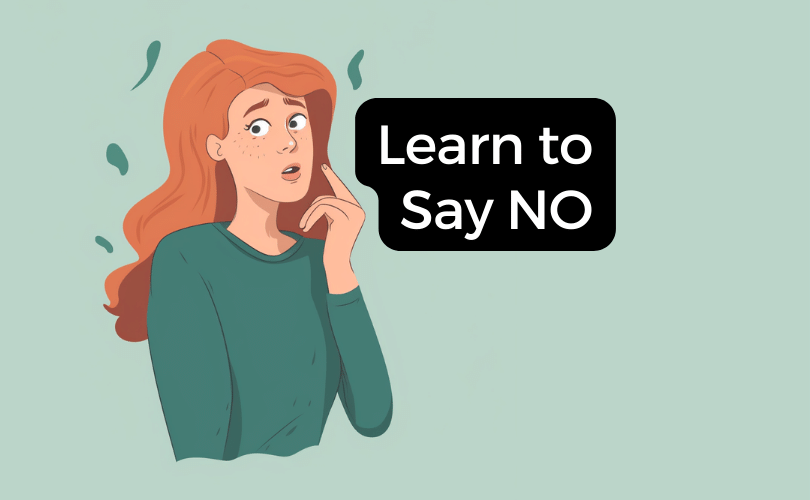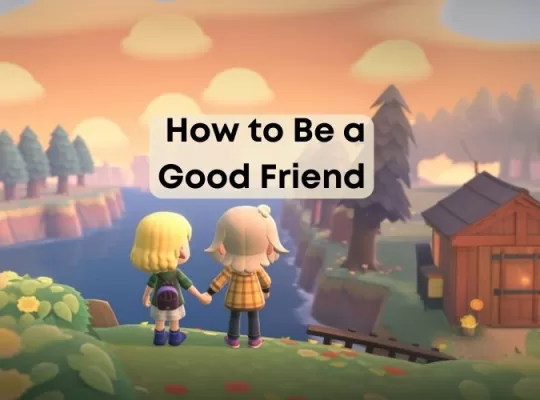Do you have a problem saying no to people? Feel like you end up giving too much and then feeling resentful with family or co-workers? Social situations can be stressful, which can make it even harder to say no. Saying “yes” is easier at first but will end up stressing you out and disappointing people in your life.
You might not want to do something, and that is okay. You have every right to decline whatever it is you do not want to do. To put it simply, no one should force you to do anything you do not want to do. Therefore, you will have to tell people “no” at some point in your personal or professional life. The hard part is to figure out how to do it with finesse. Even though being agreeable is an important part of being a team player, it is just as important to know when to say “no.”
Why It’s So Hard to Say “No”
Here are some reasons why you always end up saying “yes.”


1. Guilt
You probably want everyone to like you, and when you say no to their requests, you feel selfish, guilty, and sometimes even ashamed. You do not want to hurt other people’s feelings or make their lives harder in any way. You always wonder if you are making the right decisions and let feelings of guilt control what you do.
2. Fear of what people think
You worry a lot about what other people will think of you. You say “yes” to everything because you are afraid that if you declined or say no to people’s request, they will think you are not helpful or unwilling to work with them.


3. Fear of rejection
You get the feeling that if you say “no,” your friends and family will think badly of you. This could be something you do without even realizing it, and you might not even know that you have this fear. Have you been doing things that go against what you really want to do in order to make someone else happy? If you tend to give in to other people’s demands when they do or say something that makes you feel bad, your inability to say “no” is probably caused by anxiety or fear of rejection.
4. Fear of confrontation
Some people just do not know how to take “no” for an answer. But you may be surprised that most people will respect your “no.” Only the most self-involved will keep pushing you and trying to persuade you until you give in and say “yes” to their request. People like this need to be told “no” in a clear and direct way. Yes, it seems easier to give them what they want. But by doing this you are teaching them that you are a pushover and that your preferences and needs aren’t worth considering.
5. Desire to be praised
If you feel like you have to be nice and friendly all the time, you might tell people what you think they want to hear or be there for them when they need help, even if you do not really want to. This means that your sense of worth comes from the good things people say about you when you help them. This males it difficult to say no.
6. You’ve lost touch with your own needs and desires
You may be so tuned into the needs of others that you forget about your own individual needs, interests and hobbies. What starts out as a well-meaning habit, caretaking, ends up turning you into an enabler and a controller. These are some signs that you may be codependent. Focusing more on the needs of others can be a way to avoid spending time alone, or dealing with your own problems. It ends up being intrusive to others around you. You are responsible for yourself and self-care first and foremost.
How to Say “No” and Still Maintain Good Relationships


1) Tell them you are busy


Tell them that you are very busy and aren’t able to do it. Do this if you have so many responsibilities already that you can not take on any more. To turn down their request, all you have to do is say, “I am sorry, I would love to help, but my schedule is crazy and there is no way I can fit this in.” If it’s something for work, ask your boss to help you prioritize so you can give the most important things on your plate enough focus.
2) Buy time for yourself
Tell the person you’d like some time to think about it. You may want to help, but you may be in the middle of something. Give yourself time to think about the request and whether you have the energy to give. Often people-pleasers inconvenience themselves for others and then expect grand gestures of gratitude. You should only give if you will be ok about it whether the person is grateful or not.
3) Provide an alternative
Even if you turn down someone’s request, you can still help them. You do this by providing an alternative. This way you are still helping, but you want to do it your way. When you offer other ideas or help, you do not have to feel bad about saying “no.” Everyone wins in this case.
4) Say “no” firmly, without a reason
“No.” is a complete sentence. Tell the person straight out that you can not do what they want. You do not need to say why. You will be surprised at how often people will take a firm “no” for an answer. Even if it feels awkward at first, you need to be clear about where you stand without being vague or avoiding the issue. Don’t lead people on with maybes.
5) Role Play as Someone Confident You Admire
You can practice your confident responses in the mirror, including with a strong posture. Shoulders back, chin up! Pretend you are an actor playing the part of a confident leader. Sometimes I like to imagine myself as a substitute teacher who won’t take any guff. Or perhaps I could embody one of my role models.
Being Clear About Your Limits Will Improve Your Relationships
When you are clear from the beginning about whether you can do a favor for someone, you improve the quality of your communication and gain respect. You can show you care about others without sacrificing more of your energy than you are able. They will know that you tried your best to give them what they wanted, even though you couldn’t.
It’s important to remember that it’s not your responsibility to manage the emotions of how others handle your boundaries. It’s your job to state your needs and preferences, and the job of the people in your life to respect them and accept your limits. When you change who you are to accommodate others, you are slowly destroying yourself.
If you say “no” enough times, you will find that it gets easier and easier. Like any other skill, it needs to be practiced. If you do, you’ll have more time for yourself and the things that are most important to you. Not only will you feel better about yourself, but other people will see you as someone who is sure of themselves and has a strong personality. Own your power.








